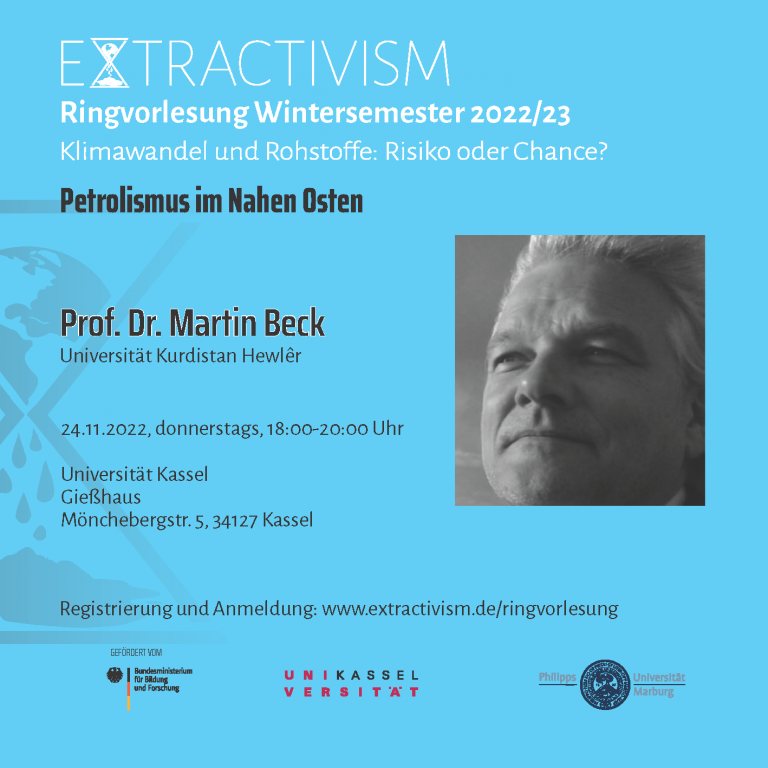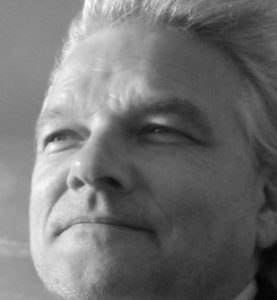Lecture Series on 24.11.2022, 18:00h to 20:00h in Kassel
Lecture from Prof. Dr. Martin Beck (University of Kurdistan Hewlêr)

Abstract
In the Middle East, oil and the rent income derived from its export characterize the Gulf monarchies as well as the Mashreq states, especially Egypt, Jordan and Lebanon. In this context, the transnational rent distribution between the resource-rich but population-poor Gulf states and the resource-poor but population-rich Mashreq countries runs through two channels: budget remittances and investments by the Arab Gulf monarchies (and Iran in the case of Lebanon) to the Mashreq and labor migration in the opposite direction.
Therefore, this lecture sets itself to two tasks. The first is to shed light on the formative power of oil extraction for the political economy of the world region. In doing so, it is important to emphasize that petrolism creates asymmetric interdependencies between states that have high petroleum rents and those that have little or no raw materials. The system of petrolism creates so-called semi-rentier states whose political economies resemble those of petroleum-rentier states in many ways. Second, the lecture addresses the question of what impact the energy transition has on petrolism in the Global South. As the energy transition reduces the demand for hydrocarbons, petrolism as a system is under pressure. So far, however, the system has proven resilient. The lecture argues that this is partly because the actors involved have adopted adjustment policies that keep pension levels high, which, in turn, has repercussions for the global economy.
Short Biography
Prof. Dr. Martin Beck, Professor of International Relations and Security Studies at the University of Kurdistan Hewlêr (UKH), has written several articles on the political economy of the Middle East.
For more information, please visit: https://www.researchgate.net/profile/Martin-Beck-14
